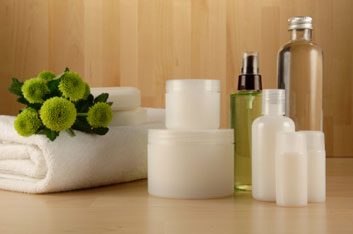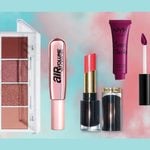How do I know if a product is really ‘natural’ or ‘organic’?
Unsure about a beauty product’s claim of being ‘natural’ or ‘organic’? Beauty editor Rhonda Rovan finds out what these labels really mean

Source: Best Health Magazine, November 2011
Although I scrutinize products daily as part of my job, even I had to go back to a couple of articles that appeared in Best Health for some crib notes on what really constitutes natural and organic. (By the way, Health Canada considers both natural and synthetic ingredients to be equally suitable and safe for use in cosmetics.)
In the context of beauty products, natural ingredients are those that come from the land or sea. (Botanical means they’re derived from plants.) But because the land from which natural ingredients are derived is not necessarily herbicide-, pesticide- and fertilizer-free, not all natural products are organic.
It’s worth noting that a ‘natural’ or ‘botanical’ label doesn’t necessarily mean all ingredients in the product are sourced from land and sea, but rather that some are. Products labelled ‘natural’ may contain chemical ingredients.
Are there any guarantees?
In Canada, cosmetic products are required by law to list ingredients using the Latin-based scientific terms of the International Nomenclature of Cosmetic Ingredients system. However, there is no regulatory definition of organic and natural for labelling purposes. ‘Until there is,’ says Darren Praznik, president and CEO of the Canadian Cosmetic, Toiletry and Fragrance Association, ‘what governs claims are government guidelines on breach of advertising.’
The only guarantee that a product is natural or organic is a certification logo. That means it’s been through an evaluation of its ingredients and standards of manufacturing. (But just because a product has no certification logo doesn’t mean it isn’t natural or organic.)
Ecocert GreenLife, a private France-based for-profit company with a branch in Canada, is one such certifier. Others include the United States Department of Agriculture (USDA), the U.K’s Soil Association and the Association of German Industries and Trade Firms (which puts its ‘BDIH’ logo on cosmetics it has certified as natural).
In the case of Ecocert, in order for a product to be certified organic, ’95 percent of its plant-based ingredients must be organic and the remaining five percent (of non-organic plant ingredients) must be from Ecocert’s list of acceptable substances. To be recognized as natural, 50 percent of the plant-based ingredients must be organic and five percent of the overall product (including water) must be organic. Says Simon Jacques, Ontario representative of Ecocert Canada: ‘Ninety-seven percent of the products we certify are in the organic category.’ Five Canadian cosmetic companies and labs are currently Ecocert-certified: Cosmetica Laboratories, Druide, Green Beaver, Souris Verte and Unipex. Others are pending.
In the U.S., the Natural Products Association to date has approved more than 400 personal care products to carry its seal. To be recognized as natural, 95 percent of the ingredients, excluding water, must be natural.
As a result of various certification bodies, there’s wide diversity of standards globally, says Praznik. ‘Efforts are underway by the International Standards Organization to establish world guidelines,’ he says, but it’s ‘not simple’ and he sees this taking time.
In the meantime, in the absence of globally recognized definitions, some alliances have formed. Brussels-based Natrue was founded in 2007 by several manufacturers of natural and organic cosmetics to promote authentic natural skin care.
In another move to create harmonized standards as to what constitutes natural and organic, four certification companies, including Italy’s ICEA, formed an alliance in the EU in 2010 called COSMOS-Standards AISBL. Canadian companies who come to Ecocert Canada can now adopt COSMOS guidelines, says France Gravel, the Quebec-based director of Ecocert Canada.
Go right to the source
What can you do if a product’s claims aren’t clear? If you’re questioning a label, contact the company through their 1-800 number or website, Praznik says. ‘Ask them, why are they calling their product ‘natural’?’ That’s pretty straightforward advice for a complicated issue. And it might just work.
This article was originally titled "Help me Rhonda!" in the November 2011 issue of Best Health. Subscribe today to get the full Best Health experience’and never miss an issue!




